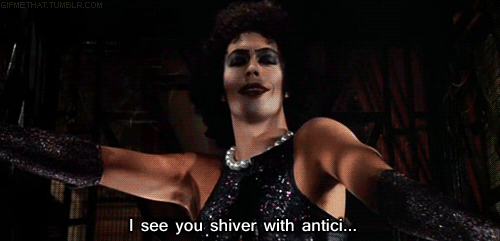Expectation is often used to refer to two totally distinct things: entitlement and anticipation. My basic opinion is that entitlement is a rather counterproductive mental stance to have, while anticipations are really helpful for improving your model of the world.
Here are some quick examples to whet your appetite…

1. Consider a parent who says to their teenager: “I expect you to be home by midnight.” The parent may or may not anticipate the teen being home on time (even after this remark). Instead, they’re staking out a right to be annoyed if they aren’t back on time.
Contrast this with someone telling the person they’re meeting for lunch “I expect I’ll be there by 12:10” as a way to let them know that they’re running a little late, so that the recipient of the message knows not to worry that maybe they’re not in the correct meeting spot, or that the other person has forgotten.
2. A slightly more involved example: I have a particular kind of chocolate bar that I buy every week at the grocery store. Or at least I used to, until a few weeks ago when they stopped stocking it. They still stock the Dark version, but not the Extra Dark version I’ve been buying for 3 years. So the last few weeks I’ve been disappointed when I go to look. (Eventually I’ll conclude that it’s gone forever, but for now I remain hopeful.)
There’s a temptation to feel indignant at the absence of this chocolate bar. I had an expectation that it would be there, and it wasn’t! How dare they not stock it? I’m a loyal customer, who shops there every week, and who even tells others about their points card program! I deserve to have my favorite chocolate bar in stock!
…says this voice. This is the voice of entitlement.